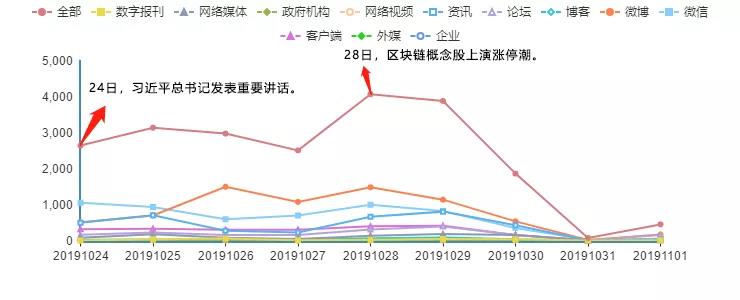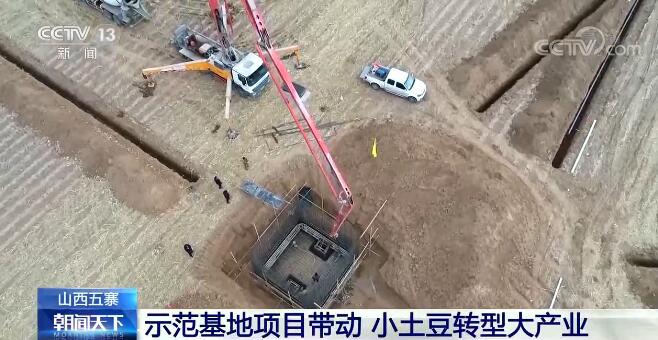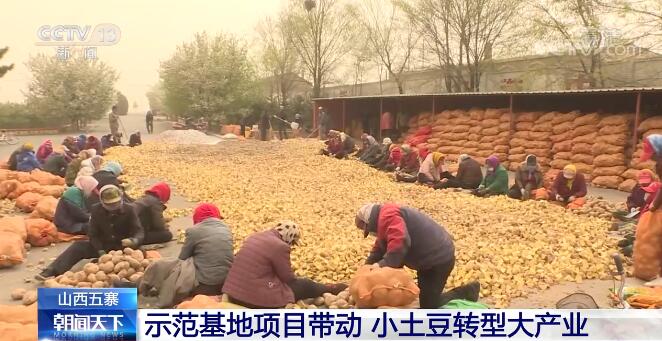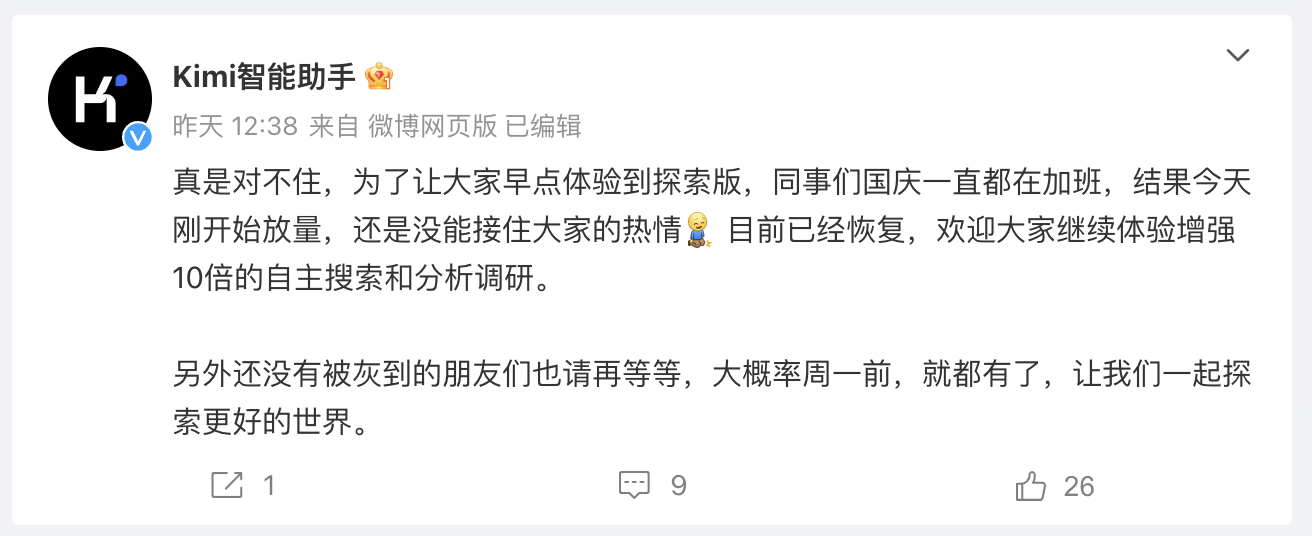In the 1950s, voegelin.(Eric Voegelin)I set out to write a series of works on Order and History, trying to reach an understanding of "historical order" by studying the main types of order that appeared in history. In voegelin’s view, man participates in the drama of existential community, and he not only has a secular life, but also moves towards transcendental truth. This intermediate structure can be explained by the spatial configuration of the image of "landmark". In the first three volumes of "Order and History", voegelin regarded Israeli enlightenment and ancient Greek philosophy as two different "leaps of existence", by which people could jump out of the cyclical cosmological order and realize the transcendence of the existential order. These two experiences are condensed in two landmarks: the wilderness and the city-state: in the former, Moses and the prophets left the secular community to seek enlightenment, while in the latter, philosophers had to stay in it. More precisely, however, the "wilderness" and the "city-state" together constitute a double variation of the intermediary structure of human beings, and people have never reached the truly naked wilderness and never completely settled in the city-state.
The fourth volume, which is 17 years after the publication of the third volume, means another ideological node of voegelin. After reflecting on the first three volumes, voegelin abandoned the linear view of history; The experience represented by the wilderness and the polis and its symbolic expression, that is, enlightenment and philosophy, have been purified from their specific society and history into a universal analytical model. Here, we recognize a new landmark, namely "maze": for the person who enters the maze, he experiences the cycle of the maze itself at the same time, but he is not completely lost, as long as he remembers that getting out of the maze is his ultimate mission. Man in the maze is undoubtedly in the disorder of the secular city-state, but he has always realized the divine reality of the wilderness as an exit. At the same time, this man in the maze finds that he is not alone. He is in the pedigree of countless seekers throughout the ages. This maze is in the consciousness of all people in all history, and because of its absolute universality, no one in this pedigree can help anyone. This maze is the common construction of revelation and philosophy, and its essence is balance.

Erich Eric Voegelin (1901.1.3-1985.1.19) was an American political philosopher.
four
In voegelin’s eyes, although there are differences in symbol types and differences between them, the two types of experience, the wilderness and the city-state, are both witnesses of the "leap of existence", and they both disintegrated the cosmological order in different ways. What exists as the hidden line of this narrative is the tension between the individual who has grasped the transcendental order and the community that is still in secular existence. In the era of cosmological order, this problem has not been reflected because of the lack of historical materials; In the early stage of enlightenment and philosophy, prophets and philosophers were rejected by the community that was still in the cosmological order; With the prosperity of secular existence, all propositions about order are reduced to secondary. We can use these diagrams to show the cosmological order and enlightenment or the way in which philosophy constructs the transcendental order and secular existence:

However, since both cosmology, enlightenment and philosophical order symbols convey the experience of the relationship between social order and existential order, this structure itself cannot be cancelled by the "leap of existence". If the "leap of existence" can be closer to the truth, then this is nothing more than saying that enlightenment or philosophy reveals the transcendence of the order of existence. After this incident, social order became a secular existence under transcendental order. In the first three volumes, voegelin never combed the relationship between secular existence and transcendental order as a bright line, and this work will begin in the fourth volume. Once he does, he will find such a structure:

Through the "leap of existence", human beings realize the transcendental order as the source of the significance of secular existence. On the one hand, this kind of consciousness itself is only the construction type of secular existence to its meaning source; On the other hand, this type of construction was recognized by voegelin as the order of human history itself. In this way, the symbols of transcendental type of revelation or philosophy have become a more universal analysis mode, which is suitable for the symbolic order between secular existence and transcendental order.
Therefore, in the first three volumes, enlightenment and philosophy, two symbol types, both of which reveal transcendental order and realize two different ways of constructing order almost independently, have become the paradigm to understand all the symbols of constructing order between secular existence and transcendental order. All this, including the myth of cosmology order and the distortion of enlightenment and philosophy in modern times, even together with Gnosticism and purely secular greed and power, can be placed in the "community of existence" marked by the two landmarks of wilderness and polis. Just as Elijah went to the wilderness from Israel, Plato disappeared into the city-state. In voegelin’s place, enlightenment and philosophy were purified into a pure method and perspective, and the specific history itself was also included in the scope of investigation. The result, as shown in the first three volumes, is the second division between the wilderness and the polis: whether in Israel or ancient Greece, the prophets and philosophers are in the tension of secular existence and transcendental order. Before going to the wilderness, the prophets also fought for the right to live within the city walls, and the philosophers in the polis also yearned for the wasteland outside the law at some time.
In the writing of the first three volumes, the two landmarks "wilderness" and "city-state" occupy the center of their corresponding texts. In the fourth volume "The Times of the World", as its name suggests, voegelin is concerned about the "world", which is surrounded by the unreachable horizon and revealed as an endless sphere-shaped space in modern times. In the era of the world, various symbols will compete with greedy powers in this space for continuous cooperation, compromise and struggle. This is indeed a new historical space provided by voegelin after continuing the wilderness and polis. However, for the following reasons, this historical space needs to be replaced by another structure that may be more appropriate: The fourth volume not only provides such an analysis of the world times including Hellenistic and Roman periods, but more importantly, in 1974, 17 years after the publication of the third volume, this volume appeared in the form of a turn, in which voegelin did not follow the plan at the beginning of the first volume step by step, but first expressed his critical farewell to this plan. Therefore, the era of the world is not the era in the first volume of the research plan, but it belongs to another sequence-this new sequence also includes the wilderness and the city-state, but the meaning they provide is very different from the beginning.
Of course, no one forced us to find a landmark. In "Order and History", we can’t find voegelin’s tendency of trying to find the "synthesis" of two kinds of experiences-to some extent, this attempt is silently reflected in all aspects of his analysis of concrete society, experience and symbols. It needs to be clarified that the so-called third landmark is completely cheap, and the second half of the masterpiece Order and History will be better understood with this landmark. Furthermore, the "setting" of this landmark will help us to better understand voegelin’s attempt to express the course of seeking order in his historical existence in all five volumes of Order and History.
The concept that is more suitable as the landmark of the fourth and fifth volumes than "the world" needs to be obtained through the investigation of the wilderness and the city-state. As mentioned above, voegelin in the first three volumes has realized the internal second division between the Israeli wilderness and the ancient Greek city-state, that is, the search for the transcendental order of existence and the response through symbolization, as well as the realization of the fact of living in a concrete secular community. In a figurative sense, we can call the former "wilderness" and the latter "city state"; Or, call the former "enlightening" and the latter "philosophical". With the adjustment of methodology, wilderness and polis are no longer just the spatial structure of a certain stage in history, but they are intertwined into a truly universal thing in a more essential way. We can say that these two words no longer belong exclusively to Israel and ancient Greece; As universal things, they are no longer a link in the new historical sequence, but constitute themselves; Under the interweaving of the experience symbolized by the wilderness and the city-state, different order symbols, including Israel, ancient Greece and the era of the world, were bred.
five
At the beginning of the fourth volume, voegelin directly pointed out that this volume deviated from his plan in the preface of the first volume, and voegelin pointed out that he "failed to fully consider those important, non-chronological and historical significance routes". (Volume 4, page 49) Although the program of Order and History, that is, "the historical order comes from the history of order", is still insisted by voegelin, he has adjusted the method of deriving the "historical order" from the "history of order". In voegelin’s view, the original plan will make the length of the study extremely large: he needs to trace all kinds of experiences and symbol types of order arranged in chronological order in history, and this sequence will become a historical order. However, it may be difficult to achieve this plan even in a long space. In the fourth volume, Vogelin found that this sort will be declared invalid because of some normal experience and symbol types. In other words, history is difficult to be put into a single-line narrative. Aware of this, voegelin bluntly pointed out his own fault: this single-line narrative is also a specific symbol type, and voegelin named it "the theory of historical creation". As a speculation about the origin and causes of social order, it is still within the scope of cosmology myth. In the first three volumes, Vogelin was vaguely aware of the connection between the "leap of existence" of enlightenment and philosophy and the myth of cosmology. Now this point has been made clear: this theory of historical creation belongs to the normal state in history, and it has continued to the present age since its emergence-it even influenced voegelin before the fourth volume.Lure him to talk about transcending myth in a mode that belongs to myth in essence. With the gradual clarity of this consciousness, that is, "the myth about the origin of the universe will never disappear like the universe." Any attempt to overcome or abandon this myth is like magic, driven by some apocalyptic desire to destroy the universe itself "(Volume 4, page 57). voegelin stopped using the term" leap of existence "because this leap has never happened decisively, and it can’t happen decisively. Therefore, in the fourth volume, Vogelin emphasized the significance of myth, and supplemented Plato in the third volume: Plato resisted the disorder brought by the old myth, but the work of philosophers still needed the supplement of the insight of divine reality embodied in myth. For Plato, myth is not just a convenient rhetoric used by philosophers to descend, it also has extraordinary and rich truth.
At the same time, the enlightenment and philosophy in the first three volumes, which are regarded as epoch-making events in human history, need to be more strictly limited in their respective historical situations at this time, and cannot be regarded as milestones on a single historical route. However, this only means that voegelin deepens the universality of his thesis: it is true that no unique historical event once and for all endows history with meaning, but through the study of "meaning in history", we find that the empirical consciousness derived from each meaning construction has the same structure. This structure therefore transcends different social types and makes it possible for "human beings" to transcend the boundaries of time and space. As a result, history is spread out, and no matter which time and space human beings are in, they do not have the authority to reveal the truth alone. They are in the same wilderness or city-state, and they cannot get a way to solve the disorder of their own situation from ancient people or future people, natives or foreigners. The universality of human beings is possible because of the ultimate impossibility of divine reality. All people are equally oriented towards the ultimate divine reality, equally living in the unavoidable secular community, and equally in a state of tension:
History is not a stream composed of people and their activities in time, but a process in which people participate in a stream of divine manifestation oriented towards the end. Therefore, the puzzling symbolic expression of "human history" reveals people’s understanding that although these insights come from specific events and appear in the consciousness of specific individuals, they are effective for everyone.
The historical process and the order that can be recognized in it are not a story, but a story that can be told from the beginning to its happy or unfortunate ending; It is a mystery, in the process of enlightenment. (Volume IV, pages 53-54)
Therefore, in the fourth volume, the experience represented by the wilderness and the polis and its symbolic expression, that is, enlightenment and philosophy, have been purified from their specific society and history into a universal analytical model. What the third landmark wants to express is nothing more than the interweaving of these two "enlightening" and "philosophical" essential experiences. It is not the exclusive enjoyment of Israel or Greece in a certain time and space, but the experience of human historical existence in a universal sense. On the other hand, as mentioned above, this kind of interweaving occurred not only in various stages of history and became the empirical basis of symbols, but also in voegelin’s own thoughts. In the end, he went far beyond the comparative study of Greek-Hebrew traditions, but embodied the spirit of the two traditions in his research methods and historical views.
We can call this landmark "maze". This is not a random word. We use the word "maze" to call this spatial configuration, and the purpose is not to dismiss it as an "unsolved mystery" by emphasizing the complexity of its interweaving. Maze, or the encounter between man and maze, means two different levels of experience: for the man who enters the maze, he experiences the cycle of the maze itself at the same time, but it is not completely lost, as long as he remembers that he is in the maze, and getting out of the maze is his ultimate mission; At the same time, this man in the maze finds that he is not alone. He is in the pedigree of countless seekers throughout the ages. This maze is in the consciousness of all people in all history, and because of its absolute universality, no one in this pedigree can help anyone. "They also have to face the same reality with the same consciousness as we do; In their pursuit of truth, when they write their words on whatever materials, they have to ask and deal with the same problems we face when writing our words. " (Volume V, page 36)
six
"Although man has fallen, he is destined to play serious games." (Volume III, page 281) This game bears and responds to the truth about transcendental order conveyed by divine reality in a symbolic way. This kind of game takes place in consciousness, "but it is not’ one’s concept of reality’, but an event in the middle, where people share the divine nature of the process with everyone to" talk ". Due to the presence of divinity in the dialogue between elf-like people, the event has social and historical dimensions. " (Volume 4, page 269) Consciousness is always the consciousness of something. In voegelin’s view, this phenomenological conclusion can and must be extended to a kind of transcendental experience, and it must be historicized-human beings must have such a consciousness structure in their historical existence: what he realizes is not only an objective "thing-reality", but also "it-reality" as a transcendental order. Correspondingly, consciousness not only has intentionality to the object-reality, but also has enlightenment to it-reality, which makes human consciousness itself the initiator of transcendental order. With the help of this analysis, especially the exposition of the enlightening structure of consciousness, voegelin regards this serious game as an essential action of human existence.
This is a maze game, and everyone who exists in the name of "human" will find himself in this maze. This maze is a common construction of enlightenment and philosophy. The long and closed maze has become a city-state in which people live. They metaphorically feel that its center will be a wilderness. People walk in the disorder of secular existence and seek order in the process of constantly getting lost-this is the divine reality that he has realized when he is in the maze, and it is this existence that interprets his stable existence as a maze that needs to be regulated. While traveling through the secular maze, the exit he wants to finally reach is the center of the maze, but the specific location of the exit has not been given, and the scene behind this exit is in a mystery. Due to the characteristics of the maze, many times people are only one step away from the ultimate divinity, but this may mean a farther distance than the original position-the symbols that convey experience are different in compactness and difference, but they have not become closer to the truth. The residents of this "city-state" cover all the members of the community on this planet from ancient times to the present, and their respective pursuit trajectories add up to form what we call human history.
In the maze, a new landmark, we can re-identify the series of symbols in the first three volumes. We have captured the image of the wilderness from Israel’s existence, and the image of the city-state from ancient Greece, respectively, to compare the mysterious and central divine reality of the maze and the secular existence as a long and tortuous maze full of danger of being lost. In this maze, we find that the Israeli prophet and the ancient Greek philosophers are both on the road of seeking from the city-state to the wilderness, although they are in different positions. The cosmological order, which was regarded as an obstacle in the first three volumes, is now summarized as the theory of historical creation, which is an attempt to put secular existence into an inevitable historical narrative sequence. It has been continuously existing in human history since the end of the third Millennium BC, and of course it also exists with Israel and ancient Greece. People captured by this theory of historical creation have never forgotten their maze situation, that is, the present situation of their secular existence and the purpose of divine reality, but they believe that they are moving forward along a path that will surely arrive. In the 19th century, this theory of historical creation manifested itself as various "historical philosophies". Nevertheless, they are still a type with the experience of the tension between divine reality and secular existence as the core.
However, all types of consciousness may be obscured, and this maze as a serious game may be completely abandoned. At those moments, people either completely forget the divine reality or cut off its connection with secular existence. As a result, secular existence loses the touch of divine reality and goes further and further in the disorder caused by greed and power. In the process of analyzing all kinds of experiences and symbol types in the era of the world, voegelin always reveals this point. The attempt to cancel the maze is as old as the existence of the maze itself, and this is exactly what the order seekers of today’s era should be alert to. "If people realize that we are still struggling with the problems set by various ideological divisions in the world today, and have not yet won the final victory, then they may feel that not much has happened in the past 2,500 years." (Volume 4, page 443) In this sense, the era of the world does not mean a certain historical stage, but a special stage that lasts until today, and its end period cannot be predicted.
The time range of the world era began from the Hellenistic era and continued to the decline and fall of the Roman Empire. There is no doubt that this era means the breaking of the previously relatively closed community boundaries, and the establishment of a world-oriented empire has continuously expanded the scope of secular existence, tending to bring the whole world under the rule of political order. Imperial theorists try to replace the universal concept of spiritual transcendental order with the universal concept representing the scope of realistic rule. Therefore, this expansion also means the escape from divine reality. "In the end, when enough people living in the same era were driven into an empire and did not provide support for the fictional narrative of a world, the assembled human beings finally showed that they were not good enough for human beings unless their universal status as human beings under God was recognized." (Volume 4, page 251) It means that greed and power have become the only motif of all mankind, and lead to uncontrolled wars and massacres. This expansion will not stop. The greedy and powerful army pursues the horizon to launch a strategy, but it finally finds that the world is in the shape of a sphere, and it will never reach the end of the horizon. At the same time, people have discovered the infinity of the universe in modern times.
In the era of the world, Gnosticism corresponds to the greedy power of secular existence. If greed for power means ignoring order and seeking, then the purpose of Gnosticism is to cancel the process of seeking and declare the possession of divine reality directly. When the enlightening feature of human consciousness is completely concealed by the intentional feature, a kind of egoism, that is, what voegelin said replaced the "self-manifestation" of divine manifestation, makes people mistakenly think that they can completely symbolize the divine reality and master it in this way. There are two different types of Gnosticism: ancient Gnostics denied the legitimacy of secular existence, and even tried to cancel secular existence itself and escape into the transcendental order that belongs to individual souls; Modern Gnostics, represented by Hegel, are all the links of secular existence and are brought under the order of divine reality that is said to have been revealed by him. Both kinds of Gnosticism mean canceling the maze by canceling the search process; And no matter what kind of gnosis, they can easily form an alliance with greedy powers because they give up secular existence:
Gnosticism, whether ancient or modern, is a dead end. Of course, this is also its attraction. Magic spiritual thinking makes people who are addicted to it have a sense of superiority in the face of reality that does not meet the spiritual requirements. Whether this addiction takes the form of libertarianism and asceticism, which are common in ancient times, or takes the form of modern times, people who are addicted to it are exempted from the responsibility of living in the universe. Because Gnosticism surrounds people’s desire for power with a halo woven by spiritualism or idealism, and it can always nourish its legitimacy by pointing out the evils in the world, once magical spiritual thinking enters history as a survival mode, it is difficult to predict what attractive historical outcome it will lead to. However, it is a dead end as far as it rejects the spiritual and rational life under various conditions of the universe. (Volume IV, page 79)
seven
In the final analysis, the core experience conveyed by the landmark maze is balance: "Only when people accept the incorruptibility as an indefinite burden can they be immortal. The balance of consciousness between height and depth, reason and uncertainty has become a balance between immortality and decay in theoretical life, that is, in the rational life of this world. " (Volume 4, page 330) It also means the balance between the wilderness of revelation and the polis of philosophy. This corrects the "belief" color that is too conspicuous in the first three volumes. In the end, voegelin became an excellent integrator of Greek-Hebrew traditions, just like his spiritual peers Strauss, Benjamin and even Wittgenstein.
At the end of every discussion, we will habitually ask: "What does this mean to us?" The wilderness and the polis finally converge into the landmark maze, which spans time and space, consciousness and reality, and becomes the intermediary field for universal human beings rooted in secular existence and heading for divine reality. We are among them, and voegelin himself is among them. He is just one of many seekers of order. Back to the first sentence, "the historical order comes from the history of order", and the "historical order" finally revealed by voegelin is presented in the form of a maze, in which everyone will look for suitable symbols according to the mission entrusted by their respective time and space, and resolve the disorder of secular existence by symbolizing the divine reality they have experienced. Voegelin’s maze trapped us in a kind of silent isolation, but it also gave every thinker and actor the possibility of real events, which the once-and-for-all single-line narrative inevitability could not give. The isolation brought by this means a complete empowerment. Therefore, it means the fact that we are still searching for order empty-handed, but no one can say that we have nothing.





![[Popular Science of Epidemic Prevention] Will Covid-19 "die down" when the weather gets warmer?](https://p2.img.cctvpic.com//photoworkspace/imageLocalized/2020/03/15/2020031513150494147.jpg)


















